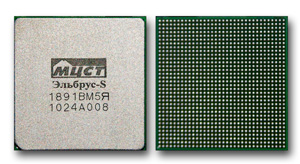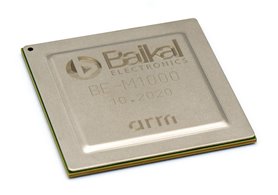
Compara Baikal-T1 VS Elbrus-S. Which processor delivers superior performance?
In this detailed comparison, we evaluate the specifications and benchmarks of both processors to determine the best choice for your needs. We analyze their core counts, maximum frequencies, and power consumption.
Baikal-T1 boasts a maximum frequency of 1.2 GHz GHz. 2 cores that enhance multitasking capabilities.With a power consumption of 3.9 W W, it ensures efficient performance.Publicado en Q4/2016, it incorporates the latest technology for optimal efficiency.
Elbrus-S features a maximum frequency of 0.5 GHz GHz. 1 cores designed for high-performance tasks.Its power consumption is 20 W W, providing a balance of power and efficiency.Launched in Q4/2010, it is built to handle demanding applications.
 Razones a tener en cuenta
Razones a tener en cuenta Mayor velocidad de reloj
En 58% mejor velocidad de reloj
Más número de núcleos
1 Más núcleos
Rendimiento por vatio
menos calor generado por el procesador, W.
Posiciones comunes Baikal-T1 CPU en pruebas de referencia populares, para comparar con otros modelos.
 Razones a tener en cuenta
Razones a tener en cuenta Posiciones comunes Elbrus-S CPU en pruebas de referencia populares, para comparar con otros modelos.
No data Baikal-T1
Baikal-T1

Comprehensive background on the processors being compared, detailing their series, generation, and targeted market segment.
Essential parameters including the number of cores, threads, base and turbo frequencies, and cache size. These metrics provide insight into the processor’s speed—higher values generally indicate better performance.
Overview of the types and quantities of RAM supported by Elbrus-S y Baikal-T1. The supported memory frequencies may vary depending on the motherboard configuration.
Analyze the TDP (Thermal Design Power) requirements of Baikal-T1 y Elbrus-S to make an informed decision on the appropriate cooling system. Remember that TDP refers to thermal watts, not electrical watts.
Information on architecture, interfaces, and additional instructions supported by Baikal-T1 y Elbrus-S, including virtual machine technologies and fabrication processes.
By analyzing the results from various benchmarks, you can gain a clearer understanding of the performance differences between Baikal-T1 y Elbrus-S.
Compare the synthetic benchmark scores and make an informed decision on the best processor for your needs!